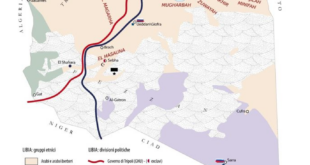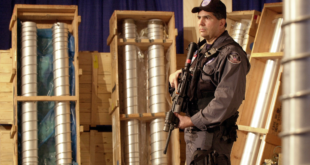ALGIERS (Reuters) – Publicity, ransom money and damage to lucrative Maghreb tourism are the possible prizes for al-Qaeda’s north Africa wing from the kidnapping of two Austrian adventure holidaymakers.
The Algerian-based group’s first abduction of Westerners since it joined al Qaeda last year is a publicity coup as it seeks to recruit impressionable youths for its drive to destabilize the region, a key oil and gas supplier to Europe, analysts say.
The insurgents, formerly known as the Salafist Group for Preaching and Combat (GSPC), will likely want a substantial sum for freeing tax consultant Wolfgang Ebner, 51 and his companion, Andrea Kloiber, 43, whom it says it seized in Tunisia on February 22.
But political goals remain paramount for the group, which claimed an attack on U.N. offices in Algiers in December and the killing of three Mauritanian soldiers and an assault on the Israeli embassy in the capital Nouakchott in early February.
“The hostages have a price, but what’s key is the media and political aspect,” said Louis Caprioli, a former French counter-terrorism official who now works for security and risk consultancy Geos.
“International public opinion is of course sensitive when you have a bombing of the U.N. offices in Algiers.
“But here we’re looking at a different strategy. For terrorists the management of a hostage is an outstanding media-focused operation, because, day after day, there will be news put out by all the media,” he told Reuters.
Anne Guidicelli of Terrorisc consultancy in Paris said: “It’s part of the logic of international jihad…Their ambition is to have a regional project rather than just a local one.”
The group sees the rulers of the Maghreb countries as apostates and seeks to drive them from power.
The GSPC has kidnapped before: It won months of Western media prominence, and possibly a ransom as well, when it seized 32 European tourists in early 2003 in the Algerian Sahara.
Some were rescued when Algerian commandos stormed a rebel hideout. German newspapers have reported that the German government paid a ransom of about $5 million to secure the release of the remainder, most of whom were German. The German government has consistently declined to comment on the reports.
UNSTABLE SAHARA
Like the 2003 abduction, the latest kidnapping exploits the instability of the Sahara, much of which is roamed by smugglers, nomads and insurgent groups, for political ends, said George Joffe, a Maghreb expert at Cambridge University.
“They’re doing this to make money and to make a political point, to say they are still there on the ground and that the governments are losing control of their territory,” he said.
An al Qaeda statement announcing the abduction suggested it had since moved the pair from Tunisia to neighboring Algeria, a mostly desert country 4-1/2 times the size of France.
An Algerian website that specializes in security said the couple had in turn been moved to Mali, a country that straddles the Sahara and the arid Sahel belt to the south.
There has been no confirmation of either report, but experts say the north of Mali or Niger would be logical choices because of the regions’ isolation, and the GSPC’s record of involvement in smuggling, money laundering and protection rackets there.
Nomadic Tuareg peoples are rebelling against their respective governments in the north of both Mali and Niger.
Security experts said the security services of the region would be working closely together and with their contacts among Saharan nomadic groups to try to locate the hostages.
“The desert is a place which looks empty, but people rapidly get to know where this or that person is,” Caprioli said.
The Mauritania attacks, including the shooting of four French tourists by suspected Islamic militants on December 24, prompted the cancellation of the Paris-Dakar rally across the Sahara for the first time in its history.
Two of the main suspects in the shooting, both Mauritanians, were captured in Guinea-Bissau, a transit point for Latin American cocaine cartels, raising fears of an al Qaeda-linked network stretching much further south into Sub-Saharan Africa than had previously been feared.
The attacks were in line with al Qaeda’s stated ambition to internationalize a conflict that has its origins in Algerian turmoil in the 1990s and to damage its European-focused tourism, important sectors for Tunisia, Morocco and for Mauritania, which wants to promote its fledging desert tourism.
“The objectives have been clearly laid down. It’s to hit the Tunisian state in a sensitive sector — tourism. It’s clearly a way of destabilizing Tunisia,” said Guidicelli.
The Tunisian government denies there is any security risk to tourists. Travel agents in Tunis contacted by Reuters said that, to date, bookings had been unaffected by news of the kidnapping.
 Eurasia Press & News
Eurasia Press & News

